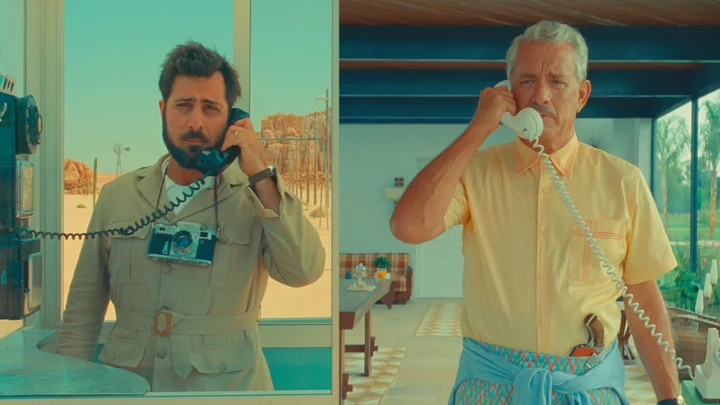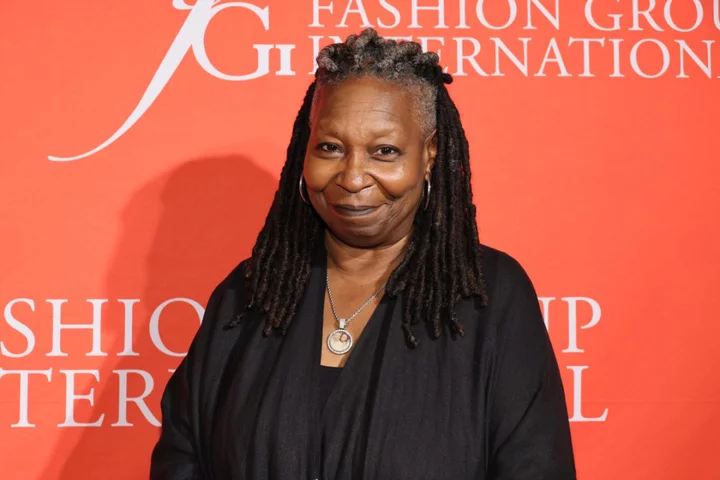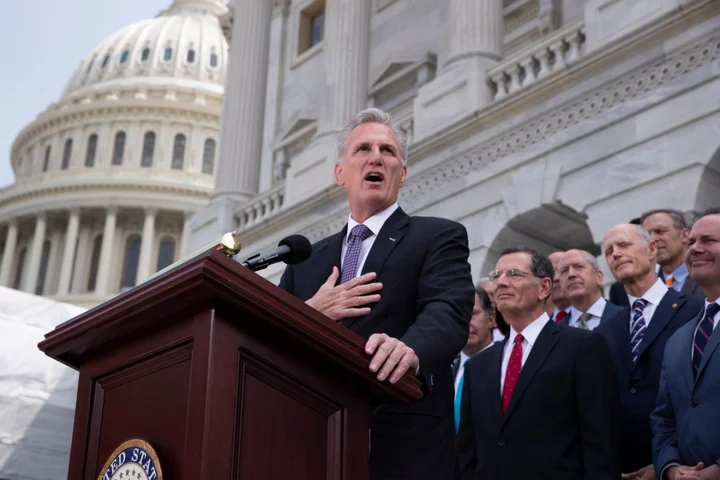In general, I reject the concept that films or television are made only "for the fans," as it is a mantra too often exercised by cash-grabbing creatives with a scorching lack of imagination and no interest in challenging their audiences. "For the fans" is a phrase used to suggest that "haters gonna hate" — and all critics are inherently haters. Yet, watching Asteroid City, the latest from Wes Anderson, I was struck by how this melancholic yet wonderfully funny movie can only be fully appreciated by those who've gobbled up the twee auteur's work, relishing not only his aesthetic and chronically awkward characters, but also his ardent themes and star-stuffed ensembles that grow more compelling than the Marvel Cinematic Universe's.
On its own, Asteroid City might be inexplicable. But considered as a reflection of Anderson's filmography as a whole, it's a gorgeous piece of origami, folding into a pretty bauble, that comes together because of its connecting corners.
SEE ALSO: 50 films we can't wait to see this summerWhat's Asteroid City about?
Credit: Focus FeaturesAccording to its logline and promos, Asteroid City is set in a titular town where a group of young stargazers have convened at a landmark crater to showcase their scientific inventions at a convention. Their parents, some more supportive than others, are in attendance, as are some members of the science community and military. But a surprise guest of honor — from outer space — throws the festivities into a spin; specifically, a quarantine that forces all trapped in the desert locale into various crises, pondering the meaning of life, death, love, and the unknowable infinite beyond the stars.
However, this is not the plot of Asteroid City.
In fact, the movie is named not for this town but a fictional play, the making of which is the subject of a television show, which is the focus of the film. Got it? If not, it doesn't really matter. The key thing is that those familiar members of Anderson's repertory, like Jason Schwartzman, Jeffrey Wright, and Tilda Swinton, not only appear as their characters in the play Asteroid City, but also as the actors playing those parts, trying to make sense of their scripted actions. Explaining this context, and sometimes wandering bewildered into the play, is a noble narrator (Bryan Cranston with an excellent mustache), who introduces us to the play's perplexed writer (Edward Norton), director (Adrien Brody), and consultant (Willem Dafoe.)
All this creates a distance between his audience and the characters and their characters. Since its World Premiere at Cannes, Asteroid City has gotten mixed reviews, with some deriding this framing device. Personally, the distance created here didn't push me to disconnect from these figures on the screen. Instead, it urged me to take a step back and consider how they connect into Wes Anderson's Cinematic Universe.
Asteroid City's characters are thin, but not unsubstantial.
Credit: Focus FeaturesSome have condemned that the characters in Anderson's latest feel thinly sketched. There's a band of kid geniuses set apart by small flares, like an obsession with performing dares, an interest in journalistic integrity, a famous mom, or a dead one. There's a coven of parents, coolly swigging cocktails from a vending machine while pondering what kind of future these ultra-gifted kids will have. There's a blossoming romance between a meek schoolteacher (Stranger Things' Maya Hawke) and a genteel cowboy (Rupert Friend). But the most focus is put on the fragile yet fascinating flirtation between a recently widowed photographer (Jason Schwartzman), who hasn't yet told his children their mother's been dead for three weeks, and a far-flung movie star (Scarlett Johansson), who feels driven to explore stories of abuse and desperation to find some meaning in her art. A shame, she tells us, as she's quite gifted at comedy.
Yes, these characters are caricatures, but drawn with the stylistic flare of Al Hirschfeld. Through a few lines, Anderson gives us enough of a sense to understand the emotional underpinnings of a boy nicknamed "Brainiac" who grapples with the loss of his mother and the discovery of his first love. Other characters, like Johansson's chic, sexual, lost celebrity, feel an artful rendering of real Hollywood glamor girls, like Kim Novak or Marilyn Monroe. Within her far-off gaze, the Marvel star is more than Asteroid City's Midge Campbell. She's dazzling representation for a constellation of gorgeous but misunderstood actresses, perhaps even the one playing her.
But these characterizations are best when Anderson's recurring cast members collide.
The origami of Wes Anderson's Asteroid City is why it works.
Credit: Focus FeaturesAmong his cavalcade of stargazing tourists, Anderson offers several fathers who fear they're failing their children, who are gifted, strange, and mesmerizing. In these relationships, there are echoes of The Royal Tenenbaums, The Life Aquatic with Steve Zissou, The Darjeeling Limited, and Fantastic Mr. Fox. As Schwartzman's recent widower laments over the phone to the stoic, gun-toting father-in-law who "never liked" him, Anderson fans might call to mind Royal or Steve or Mr. Fox, who all feared their ambitions might have detracted from their families — or perhaps more importantly, their legacies to their progeny.
When a panicking Schwartzman goes to Adrien Brody for advice, the scene is an actor talking to his director. But these familiar profiles in contrast might well pitch you back to the battling brothers of The Darjeeling Limited, desperate to be seen as individuals yet suffocatingly connected to their shared past. Or you might wonder if Brody is playing a stand-in for Anderson, coaching Schwartzman, an actor who made his film debut with the director's Rushmore. When the actor pleads to understand why his character would behave as he does, there's a grasping for meaning that goes beyond making the scene work. It's Anderson wandering once more into the existential dread of what our passions, no matter how ardently or successfully pursued, mean in a universe so big and unknowable and eternal.
Wes Anderson tries something new, and it's thrilling.
Credit: Focus FeaturesThe Wes Anderson aesthetic has become a meme, a trend, a joke. And it's easy to understand why the whimsical writer/director does not love that. Because to focus on the colors, the symmetry, and the vibe risks missing out on the heart of his work, the longing at its center.
There's plenty that's familiar to Anderson's aesthetic in Asteroid City, from its crisp framing, traveling panning shots, quirky characters with muted delivery, familiar faces, and a sense of humor that is silly while sophisticated. Yet, there are thrilling explorations here too.
Anderson's spin on sci-fi is soft yet exhilarating. In the opening credits, he'll tease who will play his alien. (Perhaps this is a nod to a theater production's playbill, presenting character appearances and casting in advance.) Yet that cannot prepare you for the curious wonder of a Wes Anderson alien. True to his animation style — as seen in Fantastic Mr. Fox and Isle of Dogs — the creature is cute but almost creepy. It's inherently hilarious, yet there's a subtle melancholy to its appearance and its actions.
The color palettes of millennial pinks, bright reds, bold yellows, and rich teals that the director is known for are transformed by the dusty glow of the desert. Creamy yellows, orange flesh, and dreamy teals paint this world, but the visitor from beyond clashes with this pretty palette.
Dazzling newcomers to Anderson's ensemble provide the final jolt of excitement. Among them are Hawke, The Menu's Hong Chau, Matt Dillon, Margot Robbie, and Tom Hanks, who plays a grumbling, macho anti-hero, which feels like a role set aside for recurring Anderson star Bill Murray. Each actor brings new color to Anderson's world, be it a patient frustration, a jaunty showmanship, a nonchalant resignation, or being a brusque but lovable old bastard. With each new face, there's the spark of possibility, of wondering what Anderson might try next in this new desert setting and this untested genre space.
Credit: Focus FeaturesIn the end, the play within Asteroid City is a pleasant tale, in keeping with the spry twists and delicate humor of Anderson's adventures. The collision of cast members new and old makes for sequences that are surprising, bittersweet, and silly in Anderson's signature rhythm. (Tilda Swinton scores guffaws with the superbly delivered pondering, "I never had children, but sometimes I wonder if I wish I should have.") Yet the most beautiful and profound element of this complicated comedy is how Anderson urges us to step back and consider not only this story, but also those that pump behind it, and the ones behind those, and so on.
All of these elements bend and fold, hooking around one another to create a work of art that is lovely to look at, and all the more wondrous the closer you consider its construction. In the end, Asteroid City is not about its clever devices or even its characters, but about the connections made every day in ways large and small, remarkable and lasting.
Asteroid City opens in select theaters June 16, expanding nationwide on June 23.









